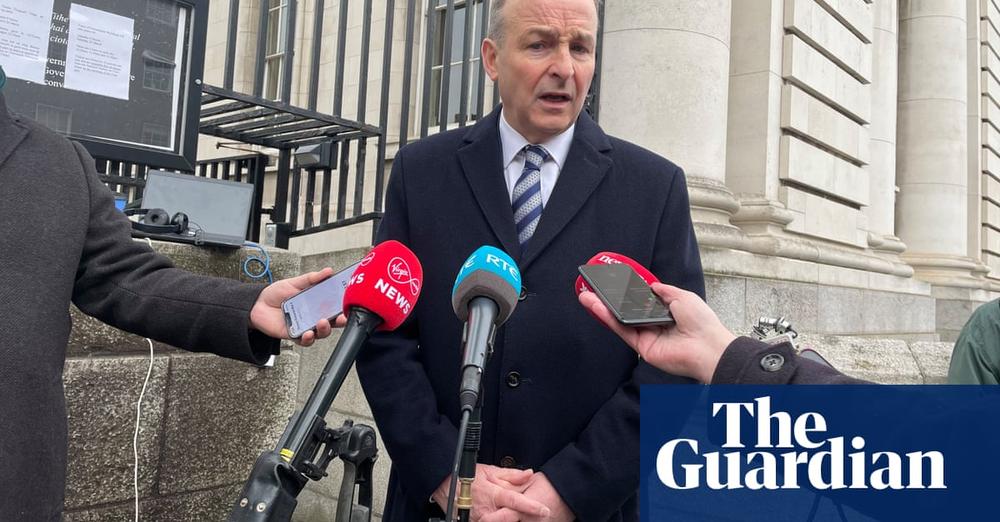Dublin joins South Africa’s case in the international court of justice, arguing that stopping delivery of essentials may constitute ‘genocidal intent’

Ireland is to seek to widen the definition of genocide to include blocking humanitarian aid in a landmark international court of justice (ICJ) case against Israel.
The Irish government will intervene in the case taken by South Africa and argue that restricting food and other essentials in Gaza may constitute genocidal intent, the foreign minister Micheál Martin said on Wednesday.
“We believe there is a case, given how this war has been conducted,” Martin told the Guardian.
“We will be inviting the court to consider the issue of broadening how you determine whether genocide has taken place or not on the basis of an entire population being collectively punished.”
A clear pattern of behaviour had impeded humanitarian aid, resulting in widespread suffering, he said. “Half the population of Gaza is facing famine and 100% is experiencing food insecurity.”
Aid agencies say only about a fifth of necessary supplies are reaching Gaza as Israel continues an air and ground offensive in the enclave in the wake of Hamas’s attacks on Israel last October. Twelve people were reported drowned on Tuesday trying to get aid dropped by plane off a beach.
Martin said the Hamas attacks, and what is now unfolding in Gaza, were blatant violations of international humanitarian law on a mass scale.
In preliminary decision in January, the UN court in The Hague told Israel to prevent genocide but Martin, who is also Ireland’s tánaiste (deputy prime minister), said that since then humanitarian aid had halved, inflicting starvation. “We’ve experienced famine, we know what it’s like in our psyche.”
Earlier on Wednesday the foreign ministry announced that Ireland will intervene in South Africa’s case against Israel under article 63 of the statue of the ICJ. The announcement underlined Dublin’s image as one of the EU’s most pro-Palestinian states.
Dublin flagged the move in January when it said it was considering filing a declaration of intervention based on legal analysis of the Genocide Convention and consultation with other parties.
That process had concluded and Dublin had decided to intervene, Martin said in an interview.
It will focus on the definition of genocide and broadening the criteria upon which genocide is determined, with Ireland seeking to challenge the high threshold set by major states, he said.
“First of all there needs to be accountability for what has happened in Gaza, but secondly we want to influence the future conduct of war.”
Ireland is to file the intervention after South Africa has filed its memorial to the court, which could take several months. Martin said Ireland will liaise with partners, raising the possibility of other states supporting the intervention.
Michael Becker, a Trinity College Dublin professor of international human rights law who previously worked at the ICJ, said genocide law had developed in ways that made it very difficult to prove genocidal intent, raising doubts about whether the convention was fit for purpose.
“Ireland might seek to impress on the court that genocidal intent can and should be inferred from policy decisions that knowingly produce famine,” he said.
“Ireland or other intervening states could assist the court by explaining how a consistent record of international humanitarian law violations can be relevant to establishing genocidal intent.”
